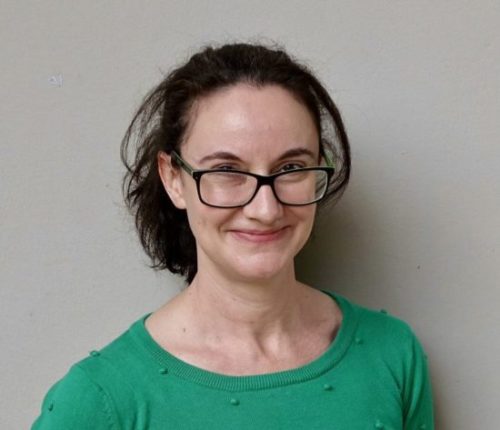
Associate Professor Tina Noutsos has been education focussed with the Doctor of Medicine up until recently, and is currently on sabbatical to focus on completing her PhD (technically, more ’embryonic’ than ‘early’ career researcher!). Based in the NT, Tina is also a clinical and laboratory haematologist in the other half of her working life.
I’m a child of migrants who never got the chance to finish high school – a generation before mine with childhoods significantly disrupted by civil war and unrest. My parents’ jobs in factories, taxi driving, and later on fish and chip shops and fruit shops funded my education and opportunities in life. I’ve always really revered the opportunity for a good education and still find it pretty amazing at times that I’ve ended up working at a university.
I think quite a lot about the immense value of a safe and secure upbringing, and the opportunities that can provide.
Briefly describe your PhD: My PhD studies snakebite associated thrombotic microangiopathy. Snakebite is a significant global health issue disproportionately affecting low-middle income countries, and prevention and treatments must ensure efficient use of limited resources. In snakebite-associated thrombotic microangiopathy, venoms trigger blood clots to form in small blood vessels, leading to acute kidney injury. My PhD investigates the natural history, laboratory and clinical features, and effectiveness of interventions such as antivenom and plasma exchange.
Who has most inspired you? It’s hard to pick one. I have found Professor Nicky Hudson – a high profile leader in medical education, who has led some external reviews of assessment in the MD – incredibly impressive in her leadership, interpersonal skills, the considered “balcony view“ she brings with her perspectives, all the while juggling multiple children and the like.
Really though, I have always highly regarded the whole collective brain bank at Flinders: there are so many great minds working in so many diverse areas, whether it be education or research related. I value the collective spirit of academic endeavour that creates.
What piece of advice would you give to aspiring EMCRs? I’m a bit of a productivity/time management book tragic, so there are countless things – too many to name here. And I’m still learning myself. I think being intentional with your time. I’m a real fan of using the two golden hours in the morning for uninterrupted writing, critical thinking and deep work; then the latter parts of the day for engaging with others, meetings, emails and the like.
Having said that, I can be a real procrastinator and my best source of inspiration is an imminent deadline. You also need to get help / seek feedback when you feel yourself getting stuck spending inordinate amounts of time analysing data, fiddling with how to present it, or down the various other rabbit holes we sometimes lose our way in.
What does ‘post-PhD’ life look like? I’m looking forward to spending more of my research time in other areas for which I’ve set up some pilot studies and am currently seeking grant opportunities – haematology related conditions with disproportionately affect Aboriginal Torres Strait Islander and rural and remote NT people, such as delivering laboratory services including transfusion in the rural and remote context; obstetric anaemia, haemorrhage and transfusion; and autoimmune conditions such as immune thrombocytopenic purpura and antiphospholipid antibody syndrome.
What’s one thing you couldn’t live without? Coffee. And getting outdoors (with a coffee – even better).

